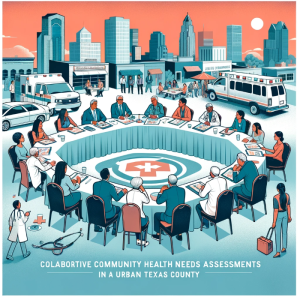
Navigating the Complex World of Healthcare Quality and Prestige: A Guide for Health Managers
Today, let’s look at the article “Rethinking Healthcare Quality and Prestige: Is This a Manager’s Number One Problem?” (available here). This article explores the crucial role of healthcare managers in balancing the pursuit of prestige with the primary goal of improving patient care and workforce conditions.
Accreditation and Standardization: The Golden Seal of Healthcare Excellence
Healthcare organizations continuously strive for excellence, often validated through accreditations like the Joint Commission International (JCI). These accreditations, symbolized by a prestigious “golden seal”, are not just about reputation. They also challenge healthcare institutions to maintain high standards of care, focusing on organizational goals and vision. However, this pursuit comes at a cost, both financially and in terms of time and resources, emphasizing the need for healthcare policy to account for these investments.
The Ranking Game: More Than Just Numbers
Healthcare rankings, such as those by America Economía, compare hospitals on various dimensions, including patient safety, workforce, and academic performance. While rankings offer a metric for comparison and improvement, they can also mislead if not aligned with an institution’s vision and goals. Healthcare managers must navigate these rankings, understanding their nuances and aligning them with their organization’s mission.
The Crucial Role of Healthcare Managers
Healthcare managers play a pivotal role in guiding their organizations through the complexities of accreditations and rankings. They must view these as opportunities for improvement rather than just a race to the top. Effective leadership involves aligning strategy with measurable outcomes, fostering a culture of continuous improvement, and motivating the workforce toward achieving higher standards of care.
For the Public Health Workforce
This article underscores the importance of thoughtful leadership in healthcare. For the public health workforce, it’s a reminder that while external validations like accreditations and rankings are important, the true measure of success lies in improving patient outcomes and working conditions. Healthcare managers are urged to focus on these core objectives, fostering a culture of excellence that transcends mere numbers.
Conclusion: Balancing Prestige with Purpose
In conclusion, healthcare managers face the challenge of balancing the pursuit of prestige with the overarching goal of improving patient care and workforce conditions. Recognizing the sociology of quantification and using rankings and accreditations as tools for improvement rather than mere comparison can lead to a culture of quality and safety in healthcare.
Current Public Health News and Commentary? Yes Please!
Embrace your role as a change-maker in public health by subscribing to ‘This Week in Public Health.’ Our weekly digest offers an insightful overview of the latest health research, innovative community health initiatives, and impactful advocacy movements. It’s more than a newsletter – it’s a compass guiding you toward informed action and leadership in the public health sphere. Subscribe for free and be the catalyst in shaping a healthier community through informed strategic actions



